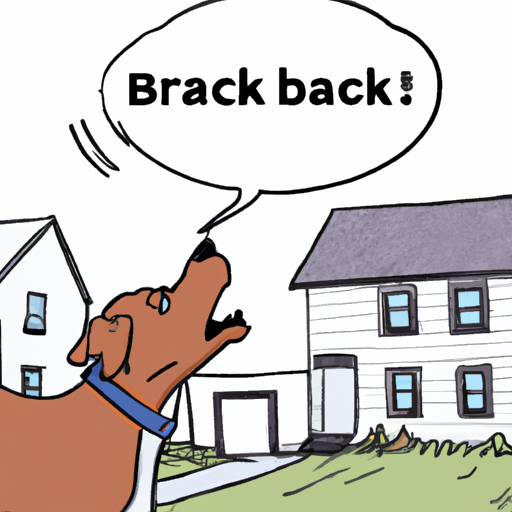Dogs are known for their loyalty, companionship, and, yes, their barking. But what happens when your dog’s barking becomes excessive? This guide will help you understand why your dog may be barking excessively and provide you with strategies to address the issue.
Understanding Why Your Dog is Barking
Understanding why your dog is barking is the first step in addressing the issue. Dogs bark for various reasons including:
- To get attention
- From boredom or loneliness
- As a response to other dogs
- Due to anxiety or fear
Try to observe when and where your dog tends to bark excessively. This can provide valuable clues to the underlying cause.
The Role of Breed and Age
Different breeds of dogs have different tendencies when it comes to barking.
| Breed | Tendency to Bark |
|---|---|
| Beagle | High |
| Golden Retriever | Medium |
| Dachshund | High |
| Boxer | Low |
Age can also play a role. Puppies and older dogs tend to bark more than adult dogs.
Training Your Dog Not to Bark
Training your dog not to bark excessively is a process that requires consistency, patience, and positive reinforcement.
- Ignore the barking: Do not give your dog attention when they are barking. Wait until they are quiet to interact with them.
- Use a “quiet” command: Teach your dog a “quiet” command that signals them to stop barking.
- Redirect their attention: If your dog is barking at something specific, redirect their attention to something else.
- Reward quiet behavior: When your dog stops barking, reward them with a treat or praise.
Professional Help for Barking
If your dog’s barking continues to be an issue despite your best efforts, it may be time to seek professional help. A professional dog trainer or a veterinary behaviorist can provide tailored strategies and guidance.
Medication and Barking
In some cases, medication may be necessary to help control excessive barking, especially if it is due to anxiety or fear. Always consult with a vet before giving your dog any medication.
Preventative Measures
Preventing excessive barking involves meeting your dog’s physical and emotional needs.
- Make sure your dog gets plenty of exercise.
- Provide mental stimulation with toys and puzzles.
- Ensure your dog has companionship and is not left alone for long periods.
- Regularly check-up with the vet to rule out any health issues.
The Importance of Patience
Remember, changing behavior takes time. Be patient with your dog and celebrate small victories. Over time, with consistent effort, you can see a significant reduction in your dog’s excessive barking.
FAQs
Why is my dog barking at night?
Dogs can bark at night for several reasons, including loneliness, fear, or a disturbance they hear. It’s important to address the underlying issue to reduce nighttime barking.
Will a bark collar stop my dog from barking?
Bark collars can deter some dogs from barking, but they don’t address the root cause of the barking. They should be used as a last resort and always under the guidance of a professional.
Should I yell at my dog to stop barking?
Yelling at your dog can actually make the barking worse as they may think you are joining in. It’s better to speak calmly and firmly.
Why does my dog bark at other dogs?
Dogs often bark at other dogs as a form of communication or out of fear or excitement. Socializing your dog can help reduce this type of barking.
Can excessive barking be a sign of illness?
Yes, sudden changes in your dog’s behavior, including excessive barking, can be a sign of illness. If you notice such changes, it’s best to consult with a vet.



